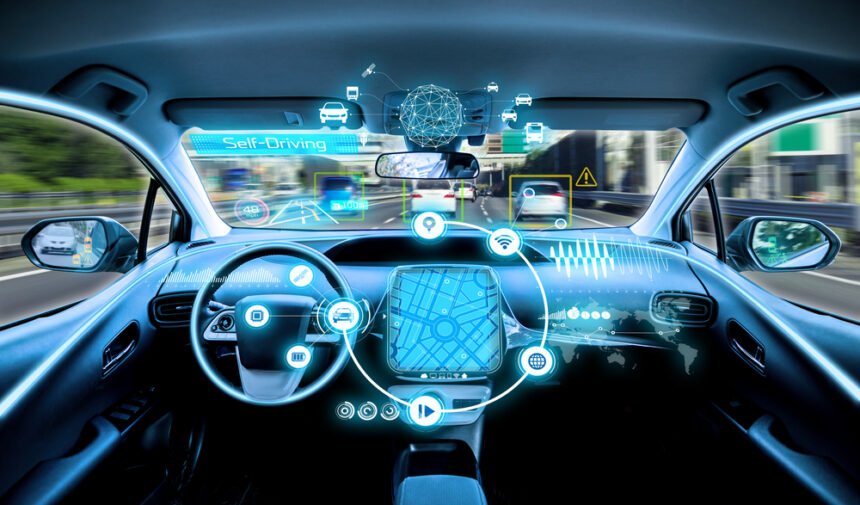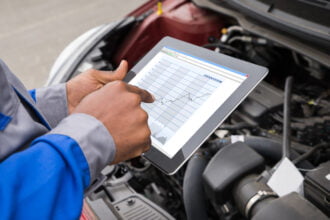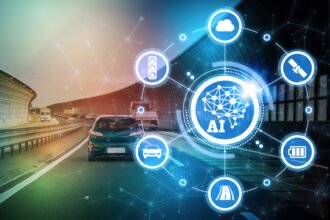Big data is fundamentally altering the future of the automotive industry in wondrous ways. The industry is projected to spend $7.8 billion on big data solutions in 2025.
The sector’s investment in data-driven technology is hardly a surprise. The automotive industry is constantly changing and evolving, and now auto businesses should embrace AI, data and analytics for daily processes to stay ahead of the curve.
In this post, we are going to analyze how these developments affect the industry as a whole ? from production and R&D to marketing and wireless network connected vehicles.
Online AI
Nowadays, customers expect the business to be open and provide customer service 24/7. This can easily be achieved by having an e-commerce website and using chatbots when agents are unavailable to answer any customer questions and deal with simple tasks. Additionally, many processes can be automated, especially aftersales and finance.
For example, instead of calling or filling a paper form to apply for finance, customers can do so online and check if they?re eligible in the first place and then have a sales assistant follow-up with the application. This step can save a lot of time for both companies and customers if it?s set-up correctly.
Meanwhile, the aftersales process can be easily automated by detecting if the customer has switched a garage from an official one to an independent one, why it happened and advice on how to mitigate this risk in the future.
Autonomous and connected vehicles
Another area in which automotive AI is already advanced is connectivity. Soon, cars will be communicating with one another and that?s how autonomous driving will advance. As the data is shared between the cars, it will know if there?s congestion or construction ahead and as a result, will modify the driving. Now that the 5G network is developed, it?ll be easier for cars to understand and share the essential data. Additionally, cloud technology can also help in improving the condition of a car, where if any maintenance is required, it can be instantly reported and arranged hassle-free.
We talked about some of the challenges on this front in the past. Data management is becoming a bottleneck with self-driving cars. Fortunately, new solutions are being developed to solve it.
Automotive Production AI
The use of AI in the production of cars can save a lot of money and prevent costly mistakes from happening. It?s invaluable in the production process as it can detect if a car part is fitted incorrectly, as well as assess how safe the vehicle is and suggest required measures to make it safer. AI will play an even more important role in the future of automotive production as autonomous and semi-autonomous vehicles will become more common. These type of cars will then use analytics to conduct predictive maintenance, as well as alerting of any problems that will occur if no action is taken to fix them. CIO talked about these benefits a couple of years ago and the benefits have compounded since.
In automotive factories, AI is used to aid workers and make manufacturing more effective and easier. For example, it can automate the QC process to identify defects and do it as quick as possible to avoid faulty products from reaching customers.
Customer Analytics
Customer analytics in the automotive industry are mainly used to analyse customer behaviour and segment them into clear groups so that marketing activities can be more effective. This includes sending personalised offers and collecting data that informs the best cross-channel integrated promotion. It can also help with identifying any problems in the purchasing process, or even the initial interest & awareness stage and rectify the issues before there is a loss of sales. Automakers that utilise analytics are ahead of the competition, as they understand what their customer wants, how they search for it, at every stage of the buying journey.
R&D
If a company wants to develop a new product or service, the first area they should look at is analytics. It provides insight into what customer wants, how similar competitors? products are performing and whether the concept is viable at all. With COVID challenges, R&D activity is expected to drop by 30% which means carmakers will need to focus on a more effective approach. This could mean integrating it more closely with analytics and having a more in-depth approach to KPIs so that the processes can move quicker.
Companies should now focus on having leaner processes to deal with the upcoming and current challenges, as well as utilize AI & Analytics to make processes more efficient and scalable.










